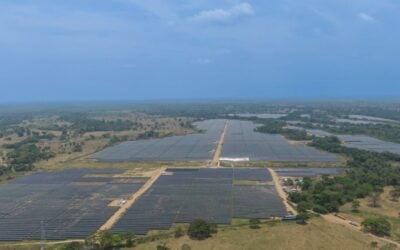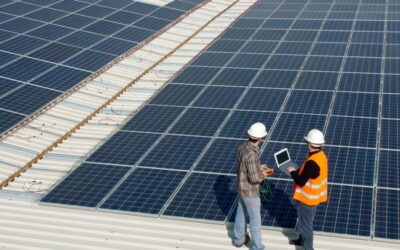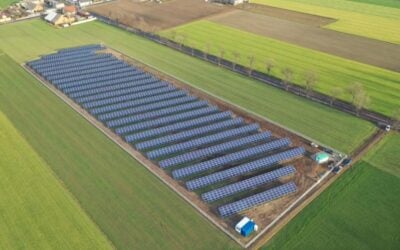
IPP Innergex and system integrator Prevalon Energy have agreed to nearly double the capacity of BESS capacity at two sites in Chile with existing operational facilities.
Prevalon Energy will provide battery energy storage system (BESS) technology for the new, separate grid-connected projects that will be co-located with the San Andres 1 and Salvador 1 BESS projects in the Atacama Desert region of northern Chile.
Enjoy 12 months of exclusive analysis
- Regular insight and analysis of the industry’s biggest developments
- In-depth interviews with the industry’s leading figures
- Annual digital subscription to the PV Tech Power journal
- Discounts on Solar Media’s portfolio of events, in-person and virtual
San Andres 2 will be a 42MW/210MWh system while Salvador 2 will total 20MW/100MWh. The company said the projects are not additional capacity, but are co-located with the original projects but with each having their own grid connection.
The Salvador 1 BESS was completed in October 2023 while San Andres 1 was commissioned this past summer, both of which are co-located with existing solar PV plants.
The new projects will bring San Andres 1 and 2’s combined capacity to 77MW/385MWh, and Salvador 1 and 2’s combined capacity to 70MW/350MWh, overall adding 62MW/310MWh of BESS capacity and increasing the sites combined BESS capacity by around 72%. All the sites mentioned including the new additions are 5-hour duration assets.
Prevalon will provide its HD 511 liquid-cooled, lithium iron phosphate (LFP) AC solution, power conversion systems (PCS) with inverters and medium-voltage transformers, its ‘USA-made’ energy management system (EMS) platform and SCADA interface. The firm claims it is certified to the ‘top-tier’ IEC 62443-5-1 Level Two cybersecurity standard, and UL 1973, UL 9540, and NFPA 855-2023 safety certifications. Prevalon was spun out of Mitsubishi Power Americas earlier this year.
The new, co-located capacity will be competed in 2026. Asked why Innergex has opted to add capacity to the two sites so soon, a spokesperson said:
“The initial projects have performed very well since their completion, and we had the necessary connection capacity available to expand our battery sites. These phased expansions, which will be connected directly to the grid, align with our diversification strategy in Chile, allowing us to enhance our responsiveness to both current and upcoming power purchase agreements (PPAs).”
“By increasing our storage capacity, we’re better positioned to meet demand more efficiently and support the long-term success of our projects in the region.”
Chile is a hotbed of energy storage activity at the moment, as it seeks to reduce huge levels of solar curtailment and shore up the grid as more renewables come online and fossil fuel plants are phased out. It was a big focus of Solar Media’s Energy Storage Summit Latin America 2024, held in the capital Santiago last month.






